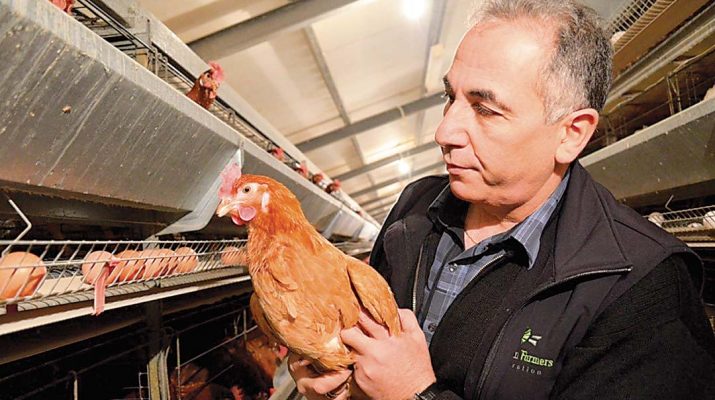By MICHELLE SLATER
CAGED eggs could be phased out in the next 10 to 15 years under a new set of animal welfare guidelines released by the Commonwealth government last month.
New guidelines for poultry were developed under an independent poultry panel in a move to improve animal welfare standards.
It covers a range of welfare requirements for poultry including chickens, ducks, pigeons and emus.
Other proposed changes include providing water to all ducks and environmental stimulation for breeding chickens.
It also includes improving the minimum light intensity and required periods of darkness, ventilation, and temperature parameters for all poultry species.
But the move to phase out caged eggs has sparked concern from Victorian Farmers Federation egg group president Brian Ahmed, who said it could threaten Australia’s food and bio security.
The Werribee-based producer has been farming eggs for the past 55 years in caged, barn-laid and free-range systems.
Mr Ahmed said removing caged eggs would not necessarily guarantee animal welfare, pointing to examples of avian flu in the UK, which spread through free range poultry.
He said caged egg production protected birds from the spread of diseases, and led to fewer losses and less reliance on anti-biotics.
“In the past two years there has been no free range eggs in the UK because of avian flu. The government locked up all the chickens as it was the only way to control the disease,” he said.
“They then imported eggs from countries with caged eggs. If this happened here Australia would have to import caged eggs from Asia.
“It’s a recipe for disaster, we need all the farming systems for food security.”
The standards will be put before state and territory agriculture ministers to consider next steps by early next year.
Mr Ahmed said Victorian farmers would be lobbying the state government to keep caged egg production in place beyond 2032.
“We have a submission into this that showed all the science behind caged eggs, but they totally ignored the science,” Mr Ahmed said.
“Caged eggs are designed for food volume production; free-range is fine if you have a few thousand birds but not for large scale farming.”
Minister for Agriculture Murray Watt said the proposed standards balanced contemporary animal welfare science with feedback from extensive community engagement.
Mr Watt said there was strong interest in the standards after 167,000 public submissions in the consultation period.
“The poultry standards are part of a suite of animal welfare standards and guidelines that aim to harmonise animal welfare legislation and provide clarity and consistency for industry and consumers,” Mr Watt said.
“The new standards will also assure Australia’s trading partners that we have strong standards of animal welfare.”

